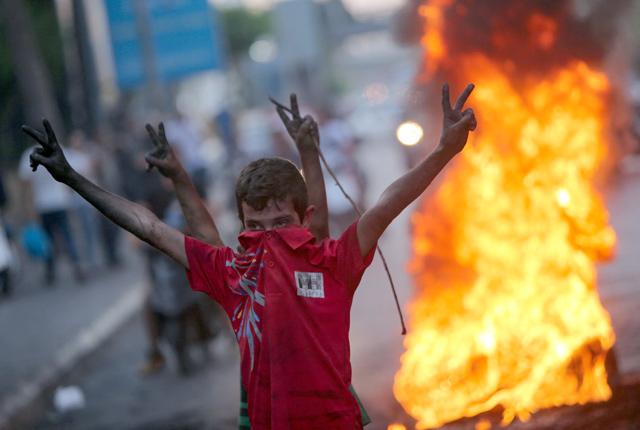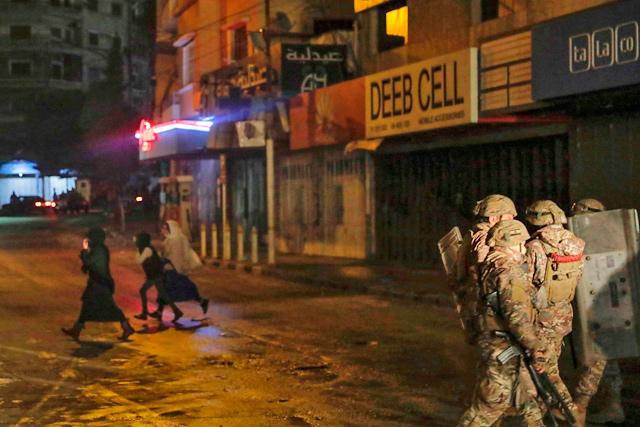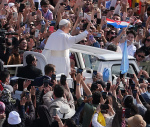You are here
Lebanon protests leave nearly 20 wounded — charity
By AFP - Jun 28,2021 - Last updated at Jun 28,2021

Lebanese youths burn tyres to block a main highway in the area of Jal Dib, east of the capital Beirut, as they protest against the country's dire living conditions, amidst the ongoing economical and political crisis, on Thursday (AFP photo)
BEIRUT — Nearly twenty people were wounded in overnight scuffles in northern Lebanon between security forces and protesters angered by a spiralling economic crisis, a medical association said on Sunday.
The protests in the city of Tripoli came as the Lebanese pound plumbed fresh lows on the black market due to a financial crisis that the World Bank says is likely to rank among the world's worst since the mid-19th century.
Calm returned to the city on Sunday after protesters tried to storm official buildings, including a branch of the central bank, overnight, forcing the army to deploy.
"18 people, both civilians and soldiers, were injured, including four who were hospitalised," said the Emergency and Relief Corps, a local medical charity that dispatched ambulances to treat the wounded.
Rubber bullets and shrapnel from stun grenades accounted for some of the injuries, a spokesperson for the charity told AFP.
The army said 10 soldiers were wounded in the Tripoli clashes, the majority in a single incident that it said involved a group of protesters on motorcycles throwing stun grenades at personnel.
The southern city of Sidon and the capital Beirut saw smaller demonstrations against the ongoing dramatic fall in living standards.
The Lebanese pound, officially pegged to the dollar at 1,507 since 1997, traded at 17,300-17,500 to the dollar on the black market on Saturday, a record low.
Some social media users said it had fallen as low as 18,000, down from 15,000 earlier in the week.
The country is also grappling with a fuel crisis that has led to seemingly endless queues at gas pumps in recent weeks.
The price of fuel is expected to rise after the government said it would fund fuel imports at a rate of 3,900 Lebanese pounds to the dollar, instead of the official rate.
The move effectively reduces subsidies on fuel as the central bank tries to shore up fast-diminishing foreign currency reserves.
The financial collapse has sparked outrage at Lebanon’s political class, seen as woefully corrupt and unable to tackle the country’s many difficulties.
Lebanon has been without a fully functioning government since a massive blast in Beirut last summer that killed more than 200 people and ravaged swathes of the capital.
The government stepped down after the disaster, but efforts to agree on a new cabinet have repeatedly foundered.
Related Articles
BEIRUT — Lebanon needs to receive 12 to 15 billion dollars from its partners to kickstart its economic recovery and shore up fast-diminishin
BEIRUT — Two separate brawls over scarce fuel in northern Lebanon have left three people dead, state media and security sources said, as sho
BEIRUT — More than 400 people have been wounded in northern Lebanon this week in clashes between security forces and protesters angered by a















